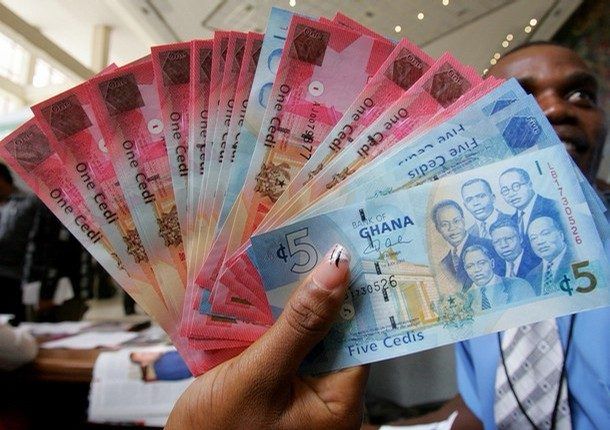Ghanaian Cedi Shows Resilience Against Major Currencies
The Ghanaian cedi has demonstrated a notable strengthening trend against major international currencies, particularly the United States dollar, as of February 24, 2025. This positive movement is reflected in both the retail forex market and the interbank market, signaling improved confidence in the Ghanaian currency. According to Cedirates.com, a trusted source for currency information in Ghana, the cedi’s buying rate against the dollar stood at GHS15.37, while the selling rate reached GHS15.81. This represents a 2-pesewa and 5-pesewa appreciation in the buying and selling rates respectively, compared to the preceding Friday’s averages. This upward trajectory suggests a potential shift in market dynamics, possibly influenced by positive economic indicators or increased foreign investment.
Forex Bureaus and Interbank Market Reflect Cedi’s Strength
The cedi’s strengthening performance is mirrored across various exchange platforms. At forex bureaus, the average buying rate for dollars was recorded at GHS15.50, while the selling rate was GHS15.90. These rates, while slightly higher than the interbank rates, remain competitive and indicative of the overall positive sentiment towards the cedi. The interbank market, which typically reflects larger transactions and institutional trading, paints a similar picture. The cedi’s buying rate against the dollar stood at GHS15.53, with a selling rate of GHS15.55. This narrow spread between buying and selling rates signifies a stable and liquid market for the cedi.
Cedi Holds Ground Against British Pound and Euro
The cedi’s resilience extends beyond the US dollar, showcasing strength against other major currencies like the British pound and the euro. Against the pound, the average buying rate stood at GHS19.34, while the selling rate reached GHS20.02. Similarly, the euro traded at GHS16.02 for buying and GHS16.66 for selling. On the Bank of Ghana’s interbank market, the pound’s selling rate was recorded at GHS19.65, while the euro traded at GHS16.25. These figures underscore the cedi’s broad-based strength against a basket of major currencies, suggesting a positive outlook for the Ghanaian economy.
Money Transfer Services Offer Competitive Rates
Money transfer services, a crucial channel for remittances and international transactions, also reflect the cedi’s favorable exchange rates. Leading providers like LemFi and Afriex offered competitive rates for dollar transfers from the US and UK to Ghana, with rates of GHS15.40 and GHS15.23 per dollar, respectively. For British pound transfers, LemFi’s rate was GHS19.47, while Afriex offered GHS19.74 per pound. Euro transfers saw Afriex offering a rate of GHS16.37 per euro and LemFi providing GHS16.12. These competitive rates facilitate efficient and cost-effective cross-border transactions, benefiting both individuals and businesses.
Digital Subscription Payments Reflect Market Dynamics
The exchange rates for digital subscription payments using Visa and Mastercard provide further insight into the currency market dynamics. For popular services like Netflix, Spotify, and Apple Music, the exchange rates were recorded at GHS16.64 and GHS16.67 for Visa and Mastercard, respectively. These rates, while slightly higher than some other platforms, still reflect the overall positive trend of the cedi and offer reasonable access to international digital services for Ghanaian consumers.
Overall Positive Outlook for the Ghanaian Cedi
In summary, the Ghanaian cedi’s performance as of February 24, 2025, demonstrates a robust strengthening trend against major international currencies, including the US dollar, British pound, and euro. This positive movement is observed across various exchange platforms, including forex bureaus, the interbank market, and money transfer services. The cedi’s resilience is likely driven by a combination of factors, including positive economic developments, increased investor confidence, and potentially favorable trade balances. While the future trajectory of the cedi will depend on several internal and external factors, the current strength suggests a positive outlook for the Ghanaian economy and enhanced stability in the currency market. This positive trend could potentially support increased foreign investment, stimulate economic growth, and improve the purchasing power of Ghanaian consumers. However, continuous monitoring and analysis of market trends will be crucial to understanding the long-term sustainability of this strengthening phase.


